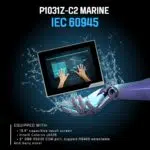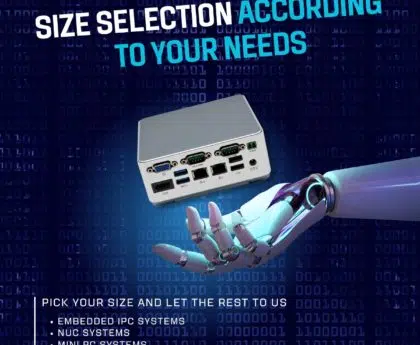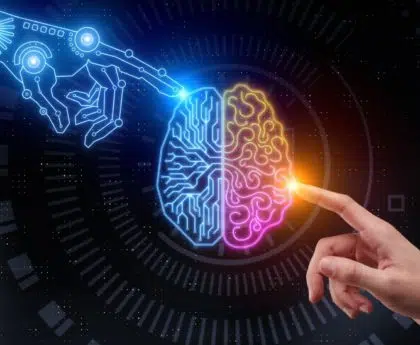An industrial computer, also known as an industrial PC (IPC) or rugged computer, is a type of computer specifically designed and built to operate reliably in harsh industrial environments. These environments often present challenges such as extreme temperatures, dust, moisture, vibration, and electromagnetic interference, which can be detrimental to standard commercial computers. Industrial computers are engineered to withstand these conditions and provide uninterrupted performance for critical applications in industries such as manufacturing, automation, energy, transportation, and more.
What is the difference between an industrial computer and an ordinary computer?
Compared with ordinary computers, industrial computers have very high scalability requirements. The design of the interface needs to meet specific external equipment. Therefore, in most cases, industrial computers need to be customized separately to meet the needs.
Here are some key characteristics and features of industrial computers:
- Robust Construction: Industrial computers are built with durable and ruggedized enclosures, typically made from materials that can withstand physical impact, moisture, and dust. This helps protect the internal components from environmental hazards.
- Temperature Resistance: They are designed to operate within a wide temperature range, from extreme cold to extreme heat. Some models can even function in environments with temperature extremes beyond what standard computers can handle.
- Vibration and Shock Resistance: Industrial computers are engineered to handle vibrations and shocks commonly encountered in industrial settings, such as those in manufacturing plants or on transportation vehicles.
- EMI/RFI Protection: Electromagnetic interference (EMI) and radiofrequency interference (RFI) can disrupt electronic equipment. Industrial computers often include shielding and filtering to minimize these interferences.
- Longevity: Many industrial applications require equipment with a longer lifecycle compared to consumer-grade computers. Industrial computers are designed to have extended lifespans, and their components are selected for durability and reliability.
- Customization: Industrial computers can be customized to meet the specific needs of different industries and applications. This includes options for various form factors, expansion slots, and input/output (I/O) configurations.
- High-Performance Components: They often feature industrial-grade CPUs, storage devices, and memory to handle demanding tasks and ensure reliability under continuous operation.
- Mounting Options: Industrial computers may offer various mounting options, including rack-mountable, panel-mountable, or DIN rail-mountable, depending on the application and installation requirements.
- Protection against Corrosion: In marine or offshore applications, industrial computers may be equipped with anti-corrosion features to withstand exposure to saltwater.
- Redundancy: In critical applications, redundancy may be built into industrial computers to ensure continuous operation. This can include redundant power supplies, storage devices, and cooling systems.
- Operating System Support: Industrial computers can run various operating systems, including Windows, Linux, or specialized real-time operating systems (RTOS) depending on the application’s requirements.
The industrial control system mainly includes three parts: system software, industrial control application software, and application software development environment. The system software is the basic core of the other two, thus affecting the development quality of system software design. Industrial control application software is mainly generated according to the user’s industrial control and management needs, so it has specificity. From the perspective of the development history and current situation of industrial control software systems, the five main features of industrial control software systems can explain the problem of what an industrial control computer is.
1. Real-time
One of the main characteristics of the industrial production process is real-time, so correspondingly, the industrial control software system should have strong real-time.
2. Openness
This is a vital indicator in modern control systems and engineering design systems. Openness contributes to the interconnection and compatibility of various systems, and it is conducive to the formation and realization of the design, establishment and application of an integrated (collective) industrial idea. In order to make the system have good openness, an open architecture, industrial software and software environment must be selected.
3. Network integration
High integration is an inevitable trend in the development of computer technology. High-speed network interface connection makes management more convenient. Make the control operation at your fingertips.
4. Multithreading and multitasking
The industrial object faced by many modern control software is no longer a single-task line, but a more complex multi-task system. Therefore, how to effectively control and manage such a system is still the main research object of industrial control software to meet this requirement. , Industrial control software, especially the underlying industrial control system software must have this feature, such as the research and application of multi-task real-time operating systems.
5. The man-machine interface is more friendly
This not only refers to the convenience of operation brought about by menu-driven, it should include the man-machine interface of design and application.
In other words, an industrial computer is a computer specially designed for industrial sites. Generally, industrial sites will have strong vibrations, extremely dusty sites, and high electromagnetic field interference. Normal computers cannot be used normally in industrial sites, which will affect work efficiency and work quality. Especially when it comes to continuous work, an industrial computer is even more needed. Industrial computer equipment has very important applications in many fields and is irreplaceable; with the upgrading and development of technology, the stability of the industrial computer system has been greatly improved, and the manufacturing and production costs of the industrial computer have also been reduced.
Check our extended list of industrial box and panel Pcs and find your best match!





